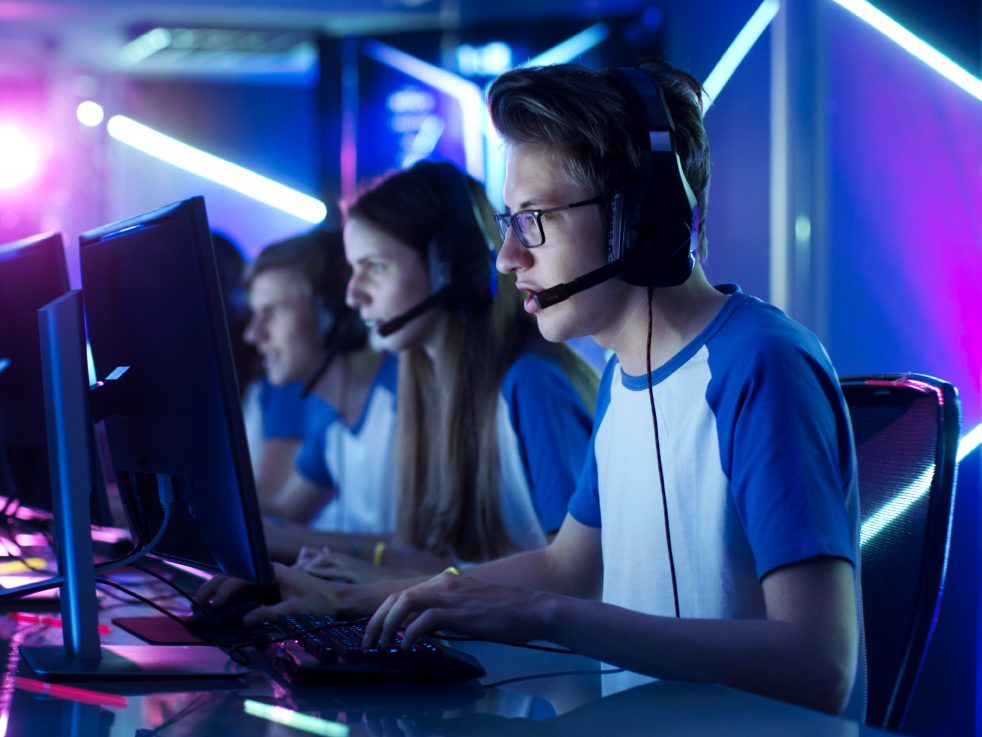Esports in education: How to cultivate a winning program:
Invest in the technologies and structure that will allow you to create a successful esports program.

As technology has advanced, esports have become a global phenomenon. According to a study commissioned by Intel and prepared by Clarity Innovations, 800,000 were expected to tune in to esports competitions in 2023. Like their traditional sports counterparts, esports have emerged as a relevant educational and competitive pursuit in universities and K-12 school systems.
Educators worldwide are recognizing the advantages and opportunities of establishing esports organizations. But, reaching their full potential requires educators to build a healthy, structured esports community.
In this post, we’ll detail the value of esports in education and outline how to create a successful program with an emphasis on structure.
The benefits of a winning esports program
If you’re unfamiliar with esports, you likely don’t understand the qualities a properly run program can nurture. The benefits of a winning esports program include:
- Equality, diversity, and inclusion – Whereas traditional sports segregate players by physical traits and gender, or require students to “make the team” to play, esports welcome participants of every ability level to hone their skills against equally matched competitors.
- Teamwork and leadership – Esports games have objectives that can be reached only by working together and following directions.
- STEM+A readiness – Students are exposed to the enabling technologies that drive their favorite games, inspiring our next generation of computer scientists, audio engineers, software developers, and other science, technology, engineering, and mathematics (STEM) professionals, as well as digital illustrators and animators, music composers, and other creators – the “A” for arts.
- Professional development – Esports can be a springboard to careers as event producers, broadcasters, influencers, and even professional gaming superstars.
- Life skills – Youths who engage in extracurricular activities like esports have higher graduation rates, better attendance, higher math and reading scores, sharper in-class focus, increased higher education aspirations, less substance abuse, and improved self-esteem. The social nature of esports discourages anonymous gameplay, which can nourish negative attitudes.
How to start an effective esports program
The first step to starting an effective esports program is to define a clear vision that others can understand. Make sure you identify:
- What the program benefits will be
- How you will achieve said benefits through esports
- Who the participants will be (i.e., student players, coaches, and other supporters like mentors, parents, etc.)
Next, you must earn buy-in from stakeholders. Convincing students to participate shouldn’t be difficult: Four-fifths of teens reportedly have access to gaming equipment and nearly three-quarters are active players. The real challenge is for coaches and advisors to convince skeptical parents, educators, and other stakeholders that a formal program can shape confident, disciplined team players.
Then you must provide enough gaming systems to make the team competitive. At first, students might bring their personal gaming devices to school. However, as the esports program develops, schools may allocate funds toward procuring high-performing devices – especially if they could be leveraged for other educational uses.
Elements of an esports-ready system
If you plan to provide devices, you must make sure they’re the right devices. Gaming-quality PCs should have the following features:
- High-end processor – For a faster frame rate and general stability, the more powerful the CPU, the better. Processors should support real-time gameplay with high frequencies, multiple cores, and great input/output (I/O).
- High-performing graphics processing unit (GPU) – The GPU is essential when playing at high resolution and should be balanced with the CPU performance.
- Input-output devices – Player preferences and game titles will determine I/O device choice: gaming mouse, mechanical keyboard, external controllers, and so forth.
- Plenty of memory (RAM) – 8GB of RAM is the minimum requirement, but esports victories aren’t about minimums. Instead, opt for the maximum 16GB of memory.
- A gaming-friendly operating system – Although some games are multi-platform, Windows-based PCs dominate the gaming world.
- SSD storage – Spinning hard drives won’t cut it. High-speed solid-state drives provide faster access to gaming and media storage.
- Ideal form factor – Laptop portability or desktop affordability? Choose based on factors like team travel or dual educational uses of the hardware.
- High-speed networking – Whereas Wi-Fi is the connectivity of choice for other education, hardwired Ethernet delivers the speed and reliability required in esports.
Esports inspire participants to achieve a ‘personal best’
Effective esports programs, like their traditional sports counterparts, enforce strict rules: attend events on time, display good sportsmanship, engage in fair competition – no hacks or cheats – and practice inclusion, acceptance, and empathy. Affiliating with a larger esports organization offers an extra advantage: Colleges and corporations can support your program through sponsorships, scholarships, and internships for outstanding esports performers, as well as those who excel in gaming-adjacent disciplines.
By embracing esports as a popular ingredient of a well-rounded educational environment, schools promote structure and discipline, a respect for rules, a sense of fair play, and opportunities for teamwork and leadership. Esports communities also model positive attitudes that promote collaborative interpersonal behaviors.
The rewards can be tangible as well: Exposure to disciplines in technology, business, and the arts can ignite career passions that extend to greater opportunities and richer life experiences. So set students up for success. Don’t treat esports as a hobby. Rather, invest in the technologies and structure that will allow you to create a successfully run esports program.
About the author
 Troy Severson is Sales Director for Gaming in Intel’s Sales & Marketing Group focusing on consumer gaming sales programs with OEM, retail, and reseller channel partners. A 23-year Intel veteran, Troy has worked across a wide variety of product development, account management, and sales roles.
Troy Severson is Sales Director for Gaming in Intel’s Sales & Marketing Group focusing on consumer gaming sales programs with OEM, retail, and reseller channel partners. A 23-year Intel veteran, Troy has worked across a wide variety of product development, account management, and sales roles.




